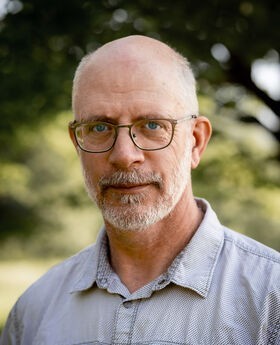
BA, Williams College
MAT, Brown University
PhD, Tufts University
John J. Kucich is Professor of English at BSU, teaching courses in American literature, Native American Literature, English education, and sustainability. He has coordinated the Sustainability Program and the Integrative Learning and Research Initiative. He currently serves as president of the Thoreau Society. Before coming to BSU, he taught high school English for ten years. He has published two books: Unsettling Thoreau: Native Americans, Settler Colonialism, and the Power of Place (University of Massachusetts Press, 2024) and Ghostly Communion: Cross-Cultural Spiritualism in Nineteenth Century America (Dartmouth College Press, 2004), and edited two collections: Thoreau in the Nick of Time (Mercer University Press, 2025) and Rediscovering the Maine Woods: Thoreau's Legacy in an Unsettled Land (University of Massachusetts Press, 2018).
Teaching Philosophy:
In my twenty years of teaching at the college and secondary school level, I've been continually fascinated watching how literature opens up the world for me and for my students. Literature jolts us out of our familiar assumptions and understandings, forcing us to confront the world anew. As a teacher, my focus has always been on giving my students the tools to refashion their understanding of the world, helping them attend to the nuances of language and the complicated cultural forces in which literature takes shape. My research in American literature has focused on how people have used writing to reshape their own environments, both natural and social, particularly across cultural lines, and I've brought the same perspective to the classroom. I use literature to challenge students (and teachers of students) to confront the limits of their assumptions and to wrestle with worlds of difference literature embodies.
Nineteenth-century American literature
Environmental literature
Native American literature